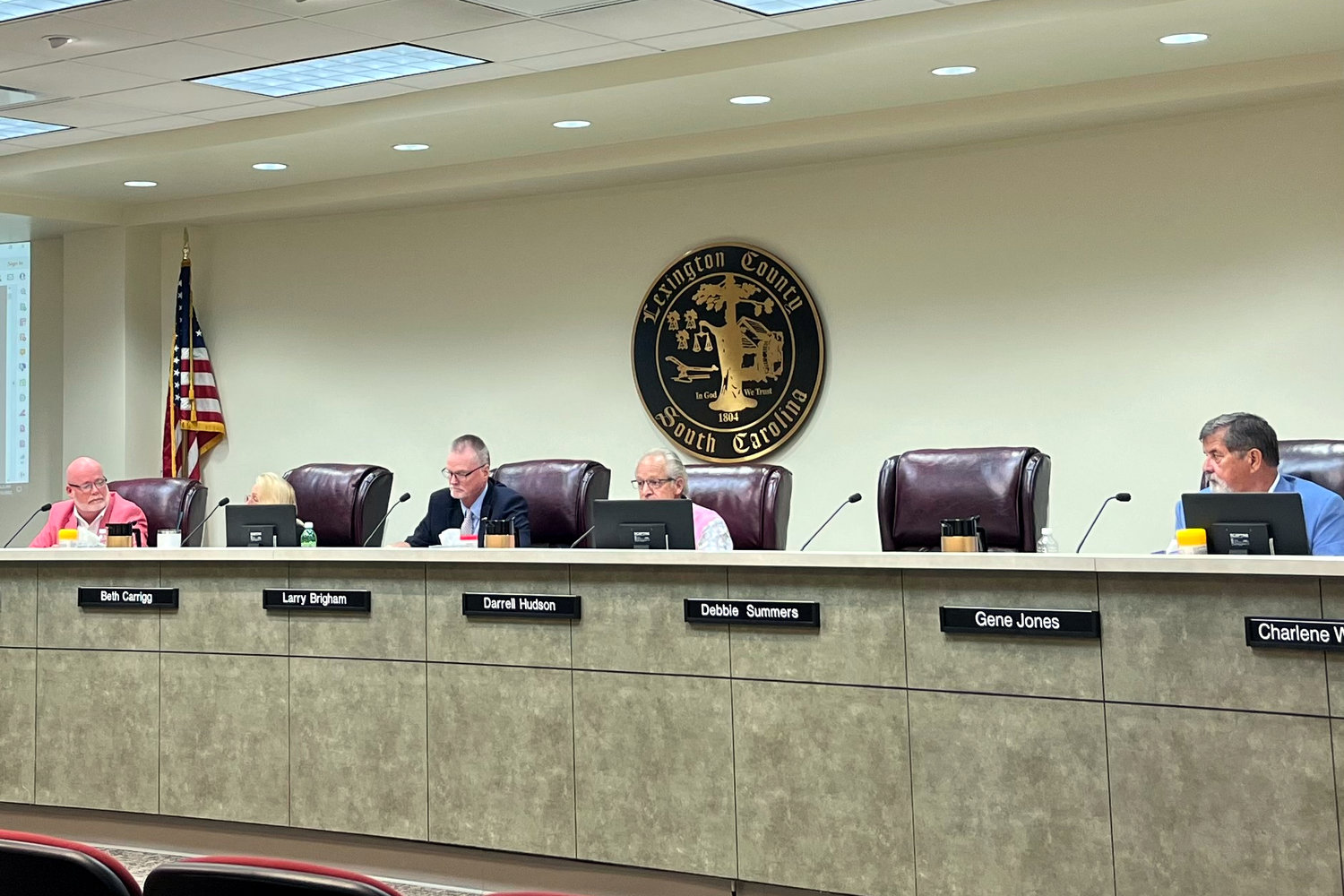County Penny Tax Endorsed by Lexington, Batesburg-Leesville Chambers
Council Passes Second Reading on Ordinance to Send Tax to November Ballot
Lexington County Council unanimously passed second reading July 12 on an ordinance that would send a penny tax for road improvements to the Nov. 8 ballot.
This item is available in full to subscribers.
Subscribe to continue reading. Already a subscriber? Sign in
Get 50% of all subscriptions for a limited time. Subscribe today.
Please log in to continueNeed an account?
|
County Penny Tax Endorsed by Lexington, Batesburg-Leesville Chambers
Council Passes Second Reading on Ordinance to Send Tax to November Ballot
After a public hearing with little participation, Lexington County Council unanimously passed second reading July 12 on an ordinance that would send a penny tax for road improvements to the Nov. 8 ballot for voter approval.
Final reading for the ordinance is scheduled for July 26. If approved by council and then by voters, it would install a 1% county sales tax that would generate an estimated $536 million across eight years to pay for more than 120 projects, ranked by priority and set to be completed in that order.
The list and the language for the ballot question that would appear on the ballot were decided upon by the Capital Project Sales Tax Commission, assembled to bring forth a proposal for the tax.
During the public hearing, nobody spoke against the ordinance, though Council Chair Scott Whetstone read aloud two emails sent in opposition to the penny tax.
“This ordinance, if passed by voters in November, will negatively affect households and businesses in this county. Even worse inflation is on the horizon,” Springdale resident John Huffman wrote in an email he also sent to the Chronicle.
“Many people think this ordinance is best because visitors here and those traveling through will pay for much of the desired revenue. But this does not relieve the pain of inflation on those who live here especially those who are below the median household income. I am well aware that neighboring counties have approved such an ordinance but I do not live there and am glad I don't.”
The only speaker who advocated in favor of the tax was Angelle LaBorde, president and CEO of the Lexington Chamber and Visitors Center, who announced that her organization as well as the Batesburg-Leesville Chamber of Commerce were endorsing the penny tax.
“Our Chamber’s Advocacy and Policy Committee ... have monitored the commission's progress over the past year, and we applaud the transparency of the process under the guidance of the commissioners and with the input of the municipalities,” LaBorde said.
“The Lexington Chamber believes that critical projects have been identified. We believe that this initiative is clearly an investment for our citizens and their employees and it will positively impact Lexington’s future prosperity.”
She added that the penny tax would create a source of matching funds that could allow the county to apply for state and federal grants to help with road improvements.
“There's a penny tax already in place in some of the surrounding counties that our citizens currently pay when they visit these areas,” LaBorde said. “And too bad we aren't making these investments right here in Lexington. So there's no better time than to invest now. Transportation costs will continue to increase. If not now, when will we as a community address our road concerns?”
Whetstone also read aloud two emails that were sent to council advocating for the penny tax.
Four members of council spoke ahead of the vote.
Todd Cullum issued an emphatic reminder that council approving the ordinance is not the same as imposing the tax. Council is choosing to let the public decide, he said.
“This is a vote to allow the entire voting public to have a say in the improvement of our infrastructure,” Cullum explained.
Larry Brigham spoke to the previous penny tax proposal that was denied by voters and council's push to make sure roads were the exclusive focus of this new proposal.
Council sent back an initial version of the project list submitted by the commission, asking it to remove all projects not directly related to roads. The commission responded by removing all projects that weren’t paving-related.
“We have pushed forward this since 2014, when it failed miserably then, and we listened to the people and the concern was, ‘If it's roads, we will vote for it,’" Brigham said. “So we're hoping that will happen in November and we'll get the yes vote. But we've explored every option that we need to explore to try to help fund the roads and this is the answer. This is it. And you can vote no, but if you vote no, nothing happens to the roads anytime soon.”
Whetstone said the council has spent a lot of time researching and debating the penny tax and further emphasized that road improvements are what it will fund.
“If you look at this list, there's nothing on this list that you can't put a piece of rubber on,” he said. “You can put tires on every single piece of it.”
Darrell Hudson said that when he first ran for council five years ago, he was opposed to the notion of penny tax, but he now sees it as the only way to pay for necessary road improvements and open up potential matching funds from the state.
“The state likes to play poker, and they like to play poker when you have three aces and then we give them two aces,” he said. “In other words, if we can match their funds, they'll match our funds.”
Keywords
lexington county council, penny tax, midlands road improvements, columbia transportationOther items that may interest you







Comments
No comments on this item Please log in to comment by clicking here